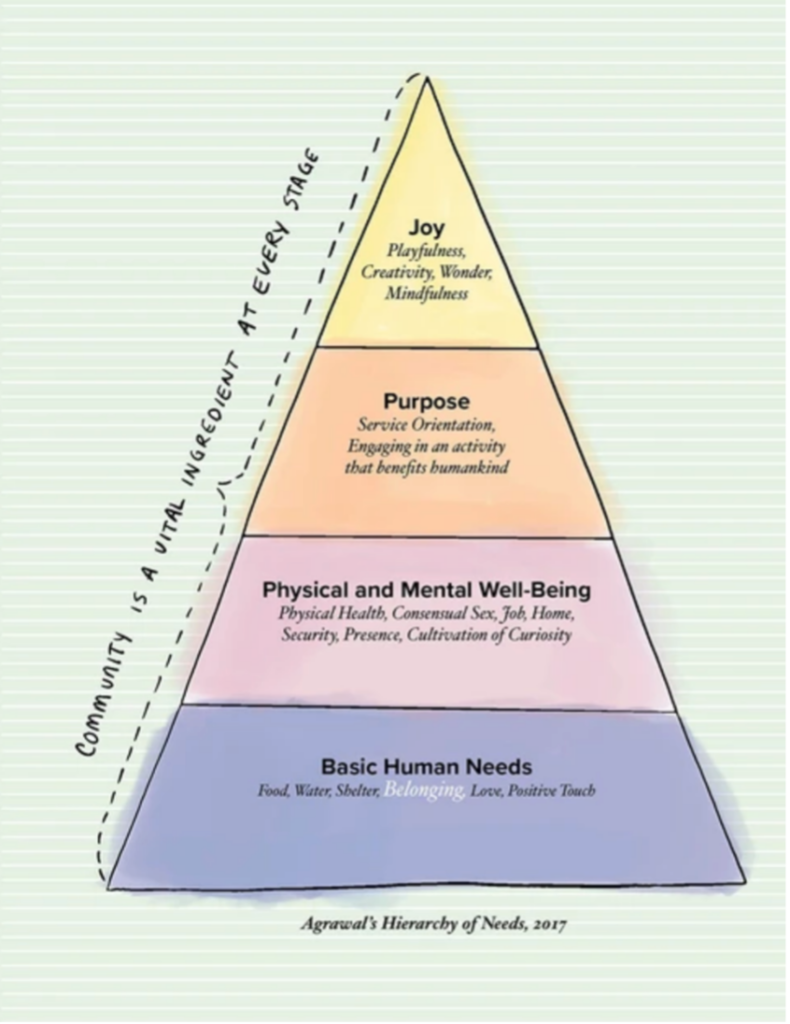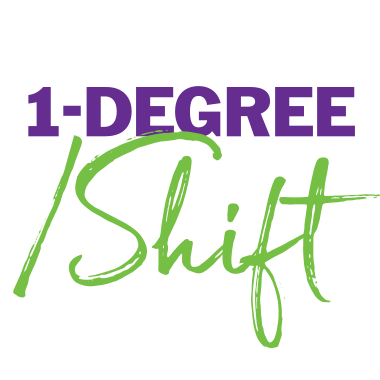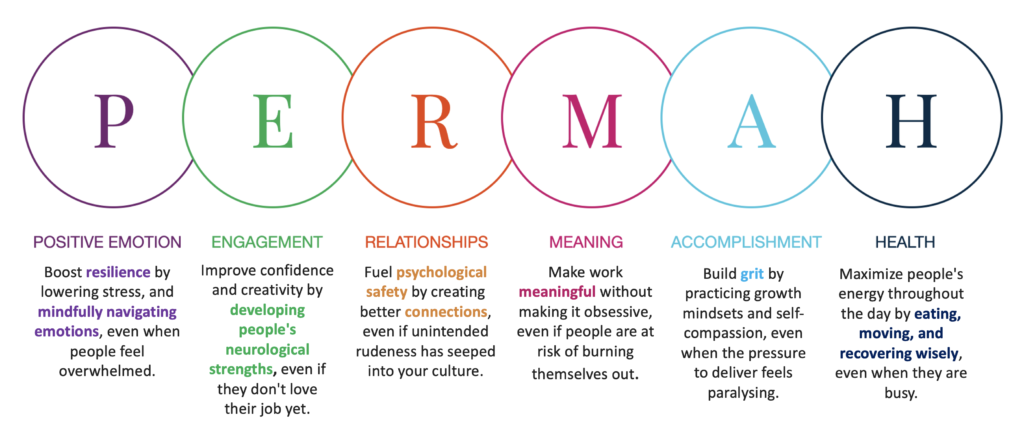“We are born in community—fully connected to another human. Without connection, we cannot survive. It’s in our DNA to belong”. – Radha Agrawal
I have been taking part in 1-DEGREE/Shift’s Vitality Squad – a 90-day experience focused on nurturing personal & professional well-being. I am one of eight members in the squad – a diverse group of voices from different companies who are all committed to, and fully engaged in, cultivating healthier well-being rituals. The program involves peer sessions & one-on-one coaching, both of which have been immeasurably valuable to crafting & activating my own Vitality Map (areas of well-being I want to nurture, with practices that directly impact those areas). It has been an amazing experience to be on this journey.
One thing that has become really apparent since starting with our Vitality Squad is that well-being is multi-dimensional and dynamic. A very helpful tool that we have been leveraging for our Vitality Maps is centred on a well-being framework developed by Martin Seligman that breaks down our well-being into six fundamental pillars: positive emotion; engagement; relationship; meaning; accomplishment; and health. This is called PERMAH.
The Wellbeing Lab has created a profoundly insightful evidence-based assessment that measures these well-being dimensions. This tool is called The PERMAH Wellbeing Survey – take the free personal well-being survey here. After taking the survey you will receive a results report that details where your well-being areas of opportunity are and identifies effective practices to help nurture those areas.
I like to imagine my own well-being as being broken up into little batteries – each battery representing a different influential element of well-being. Each battery’s needs are unique – some areas need more recharging than others and it’s important to learn what practices in your toolbox work best to recharge them. If you’re interested in diving into your personal PERMAH assessment results, let’s get in touch!
Lately, I have been thinking deeply about the R in the PERMAH framework – relationships. I was really struck by the fact that Dr. Michelle McQuaid, founder of The Wellbeing Lab, shared that their research showed that R – Relationship is THE most vital of the PERMAH ingredients. There is so much value in being intentional & mindful in our relationships. Our ‘relational health’ directly impacts our well-being – as humans, we are social creatures after all.
Connection is a Vital Human Need
Our 1-DEGREE/Shift team has always deeply valued collaboration & meaningful relationships. We believe that intimate connections are at the foundation of vital human needs.
Radha Agrawal, author of Belonging, says simply “we are born in community—fully connected to another human. Without connection, we cannot survive. It’s in our DNA to belong”. To connect is human nature! In fact, in her re-imagination of Maslow’s Hierarchy of Needs, she notes belonging as being a basic human need like food, water and shelter. (see below)

Scientific research supports this idea that our relational health is closely tied to our physical health. Our relationships and interactions (or lack thereof) are powerful enough that they can have a physiological impact. A recent MIT study found that when we lack social interaction, it activates the same region of our brain that lights up when we are craving food. Another study found that our brains react to social pain in the same way they would react to physical pain.
All of these point to the same thing: that we need to start thinking about our relationships as vital to our health – we all need to be more mindful of the state of our ‘relational health’.
Isolation & Disconnect during the Pandemic
The COVID-19 pandemic made our need for interaction very clear – isolation and separation is detrimental/dangerous to our well-being. In our work, we hear time and time again that what people are craving right now is the space for meaningful connection with other people. Many of us may see the virtual workplace as being inherently cold, isolating, transactional and a very challenging landscape to create real relationships. However, we’ve discovered that it’s the culture around virtual work that is the cause of the disconnect we feel.
We are spending more time in meetings, and yet no time on actual connection.
Microsoft’s 2021 Work Trend Index Report shows that time spent in Microsoft Teams meetings more than doubled (2.5x) globally since the beginning of the pandemic. We would think that all this extra time in meetings with people would mean less isolation. However, data from the same report suggests that while interactions with our close networks increased at the start of the pandemic, all interactions outside of those groups diminished. At the beginning, people took time to check in with others however soon we became so busy and overwhelmed that we no longer created that space for connection. Meetings became longer, more frequent and very transactional. This is why companies are more siloed now than they were pre-pandemic.
Looking Ahead: Hybrid Work & Nurturing Intimate Connections
In understanding how the past few years have affected our relational health, it becomes apparent and urgent that we nurture our relationships & are more intentional about how we are caring for them.
Many organizations are looking at a hybrid work model as we enter the new year. Navigating the part-virtual, part-in-person landscape can be a relational challenge.
How can we prioritize & nurture meaningful connections as a vital component of well-being and cultural health?
Here are 5 proven practices that we find helpful:
Connection before Content
Make space for informal check-ins at the start of EVERY meeting. Creating an opportunity to be vulnerable & authentic will help build and deepen connections. As leaders, building this into our meetings is a powerful example of prioritizing relational health!
Practice Gratitude
Taking the time to show gratitude to those you work with will bring your teams closer. Expressing gratitude provides wonderful opportunities to initiate, maintain & strengthen the relationships in your life.
Build New Relationships
Encourage your teams to engage with people outside of their immediate work circles. We have all felt the isolating effects of the pandemic – bringing those periphery relationships closer will foster a much stronger sense of unity in your organization.
Empathetic Listening
Listening allows us to look within ourselves and see the barriers keeping us from real, authentic communication and connection. Active listening nurtures stronger and healthier relationships. Practice listening with full intent, engagement & compassion. Listen to learn, and you’ll find yourself growing closer to others.
Respect & Honour Boundaries
Since we have been thrown into this hybrid/home work environment without any adjustment time, we have been overdosing on digital. The average meeting length has increased 10% in the past year from 35 to 45 minutes, and we are all feeling the effects of Zoom fatigue.
A simple way to help prioritize your team’s well-being is to actively manage how meetings are scheduled and be creative with reducing the number of minutes spent on calls. One strategy is to provide pre-work and agendas before the time of the meeting so that actual meeting time is spent on discussion, instead of explanation thereby saving time and shortening the duration.
Honouring people’s boundaries could also look like ensuring there is always buffer time in between meetings of at least 15 minutes, or even implementing a no-call black out period every Friday afternoon.
What are one or two of these practices that really resonate with you?
Relationships play a central role in our personal well-being – it was pointed out to be the most vital well-being element in the PERMAH framework as found by The Wellbeing Lab’s research. Building & nurturing relationships in the workplace can help ensure a healthy & safe work environment where employee well-being is prioritized.
We know that healthy, happy employees are more likely to be productive, engaged & loyal to their companies – but it takes more than simply telling people to ‘look after their own wellbeing’. We have to actually do something about it & be intentional about how we build organizational culture.
Interested in learning how you can revitalize and restore the relationships in your organization?
Mali Foster
1-DEGREE/Shift



